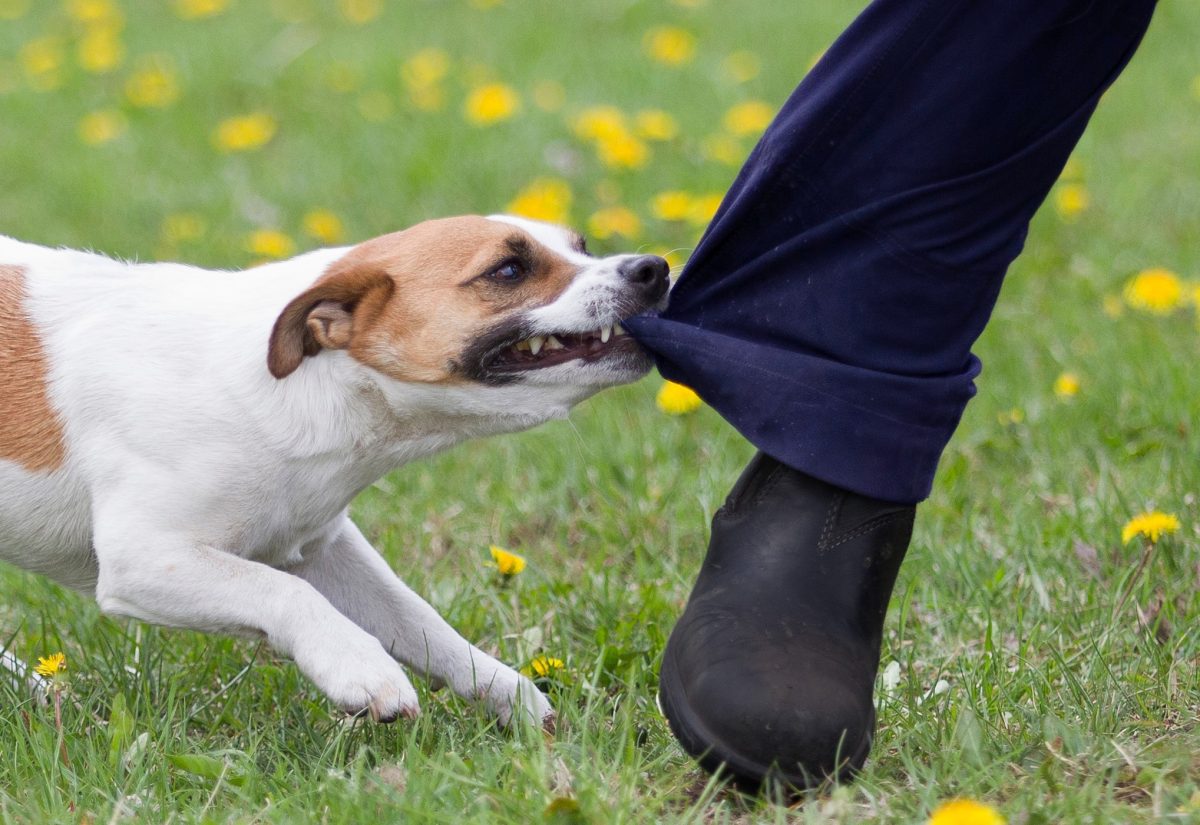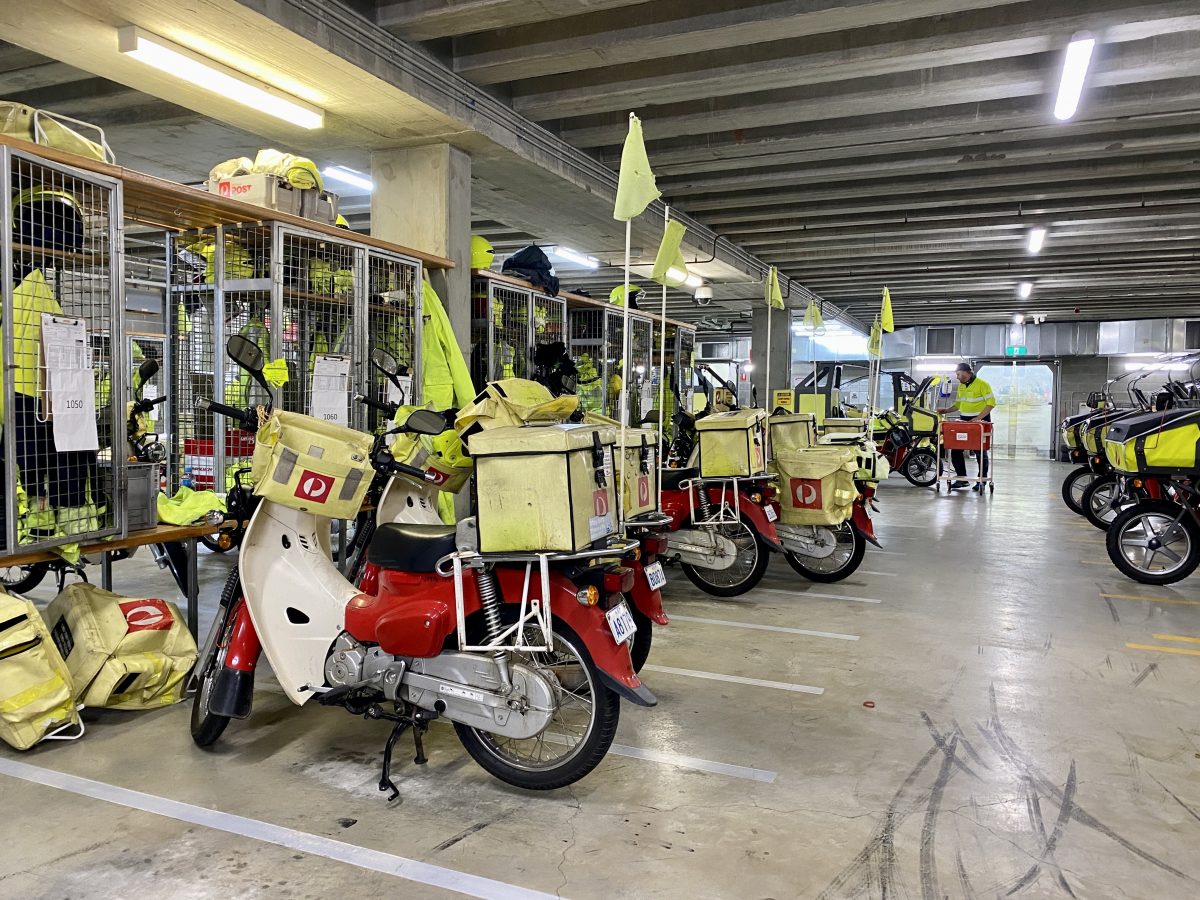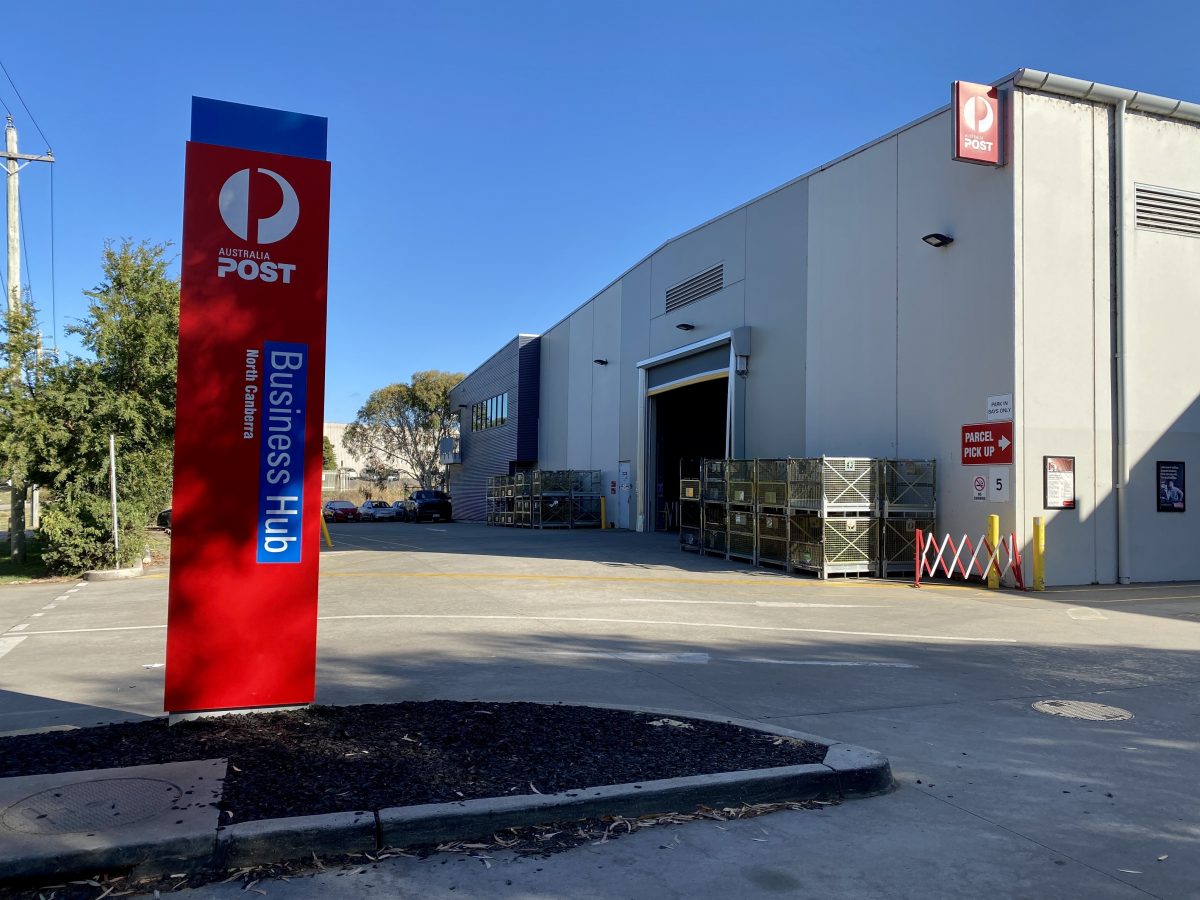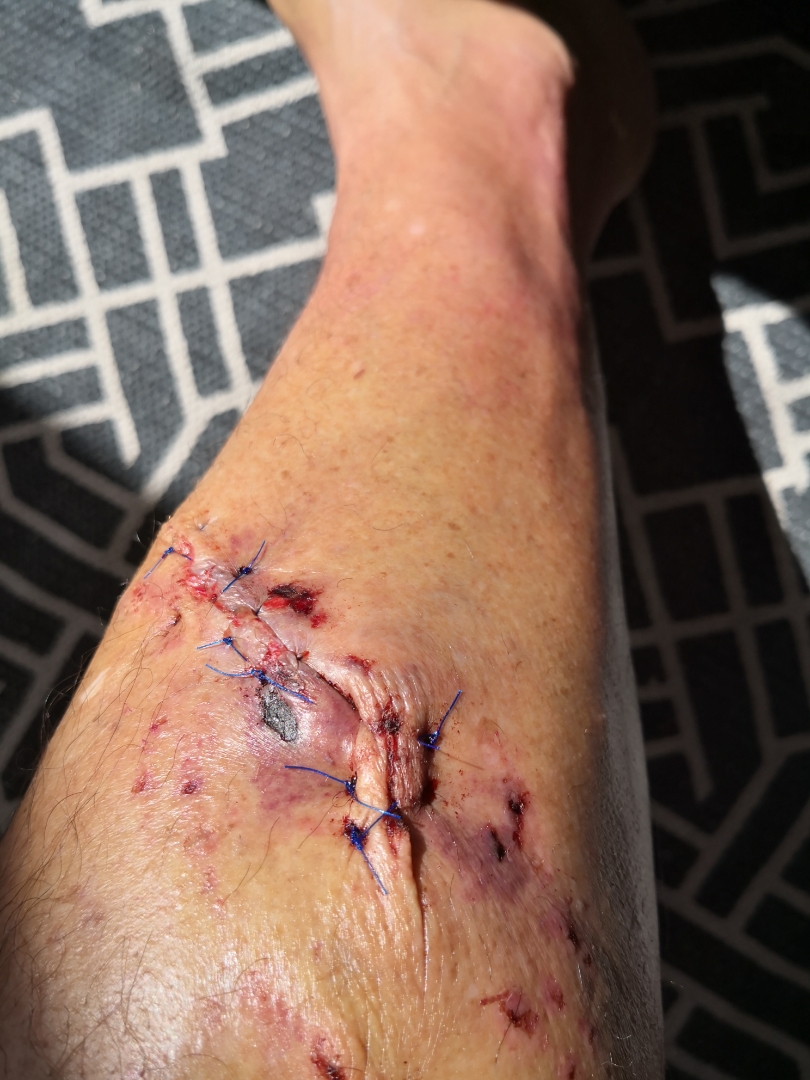
Over the past six months, 15 Canberra posties have been attacked by dogs. Photo: Australia Post.
Will Riley had just rolled up a suburban driveway in Belconnen and put his foot on the ground to stabilise his motorbike while he slipped a letter into the mailbox – when he felt the bike shaking.
A look over his shoulder revealed a big, beefy blue heeler with a strong grip on his rear tyre. But within seconds of Will’s other foot landing on the ground, the dog was into it with its teeth.
A postie with Australia Post for about three-and-a-half years, Will’s based at the Belconnen depot.
Over that time, he’s been bitten by a dog five times, mainly in and around the suburbs of Cook and Aranda. The latest was four months ago.
“Of those five, only one has ever broken skin, luckily,” he says.
“They’ve normally got me on my boots or pants, and only one sort of grazed my hand with its teeth through my glove.”
Plenty of other posties are less fortunate.
Will is one of 15 Canberra posties to have been attacked by dogs over the past six months, according to new – and scary – figures from Australia Post.

Two things dogs hate – motorbikes and fluro. Photo: James Coleman.
The national mail service is urging dog owners to properly secure their pets behind locked front gates or backyard fences amid “serious safety concerns” for their posties.
More than 1420 “dog-related incidents” were reported across Australia over the past six months, equating to 55 posties a week, or 11 incidents a day.
Half are taking place on customer property, with one in three at the customer’s front door and 15 per cent in situations like Will’s, where posties are placing mail in letterboxes.

Australia Post says half of all attacks occur on the customer’s property. Photo: James Coleman.
Up to 34 per cent of all cases occurred on the street – eight per cent with the dog’s owner present, 26 per cent by dogs escaping a property.
Australia Post says the figures don’t prove one single dog breed is more likely to attack than another, but it does increasingly appear to be smaller dogs showing the aggressive behaviour.
Queensland leads the way, with 466 incidents in the last six months, followed by NSW with 408 and Western Australia (215).
Of the 15 in the ACT, Fyshwick, Mitchell and Tuggeranong were singled out as the worst areas.
Australia Post general manager of Safety and Wellbeing Rod Maule called on more owners to take responsibility for their pets and not always assume their dog couldn’t possibly hurt anyone.
“Customers must understand that for many posties, it can be stressful or triggering knowing that your delivery round may involve a dog that shows aggressive behaviour,” he said.
“Our team members just want to be able to deliver for our customers, without being attacked, harassed, or chased by dogs.”
Regardless of the breed or temperament, Australia Post implores owners to secure their dog safely in a back garden, on a leash, or in another room when expecting parcel deliveries or mail, whether or not you are at home.

Dog attacks can have nasty outcomes. Photo: Australia Post.
“If you are unable to restrain your dog securely, we suggest using our parcel lockers where possible,” Mr Maule said.
For Will, a dog attack isn’t something he’s particularly anxious about while out on the job.
“But it’s definitely an issue – every postie here has stories,” he says.
The combination of the bike’s sound, the helmet and high-vis uniform spell panic for dogs, which then act out their fight instinct to protect their owner.
“I know, because I’ve got two dogs at home and one of them, if I’ve got my motorbike helmet on, will just start barking and growling. And then as soon as I take it off, he’s like, ‘Oh, it’s you’.”

Australia Post’s cute but serious safety campaign. Photo: Australia Post.
Over the years, Will’s made some changes himself, such as always making sure the screen door is clicked shut when knocking on customers’ front doors and occasionally putting his boot up against the door to stop a dog from barging out at him.
“Dogs are like people – they can have a bad day as well, and the day I arrive could be that day.”
Posties can also refuse to make a delivery if they feel it is unsafe and Australia Post will cease service to a customer’s home “until the danger is fixed”, according to a statement.
“Australia Post also reports dog-related incidents to relevant local councils to ensure enforcement is actioned.”
In cases where the dog is found wandering the streets, this can involve a call to the local pound.
Original Article published by James Coleman on Riotact.












